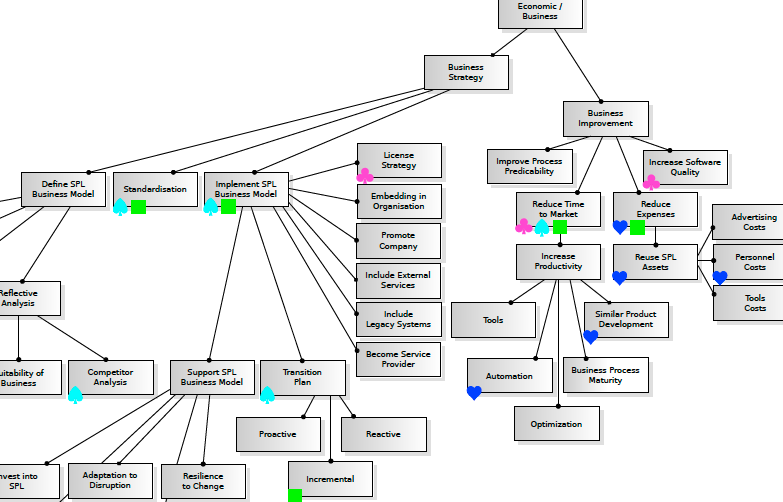
We present a comprehensive analysis of 8 published case studies on the meaning of sustainability in the context of product line engineering.
Sustainable living, i.e., living within the bounds of the available environmental, social, and economic resources, is the focus of many present-day social and scientific discussions. But what does sustainability mean within the context of software engineering?
In this study we undertake a comprehensive analysis of 8 case studies to address this question within the context of a specific software engineering approach, software product line engineering (SPLE). We identify the sustainability-related characteristics that arise in present-day studies that apply SPLE.
We found that technical and economic sustainability are in prime focus on the present SPLE practice, with social sustainability issues, where they relate to organisations, also addressed to a good degree. On the other hand, the issues related to the personal sustainability are less prominent, and environmental considerations are nearly completely amiss. We present feature models and cross-relations that result from our analysis as a starting point for sustainability engineering through SPLE, suggesting that any new development should consider how these models would be instantiated and expanded for the intended socio-technical system.
Ruzanna Chitchyan, Iris Groher, Joost Noppen: Uncovering Sustainability Concerns in Software Product Lines, Journal of Software: Evolution and Process, Volume 29, Issue 2, February 2017, http://dx.doi.org/10.1002/smr.1853.
